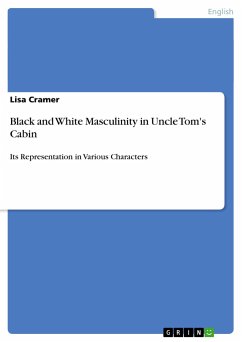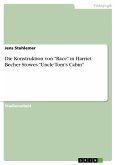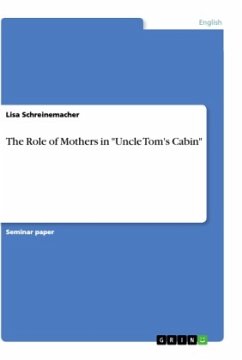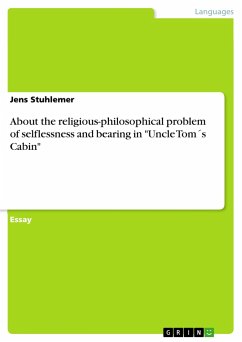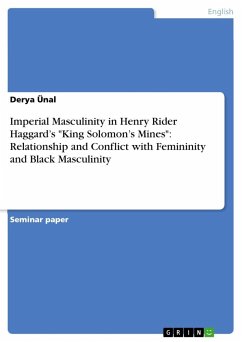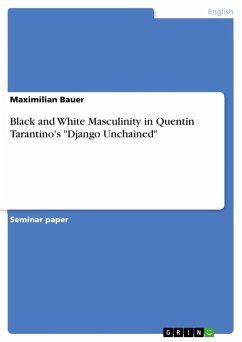Document from the year 2014 in the subject American Studies - Literature, grade: 1,3, University of Mannheim (Anglistisches Seminar, International Cultural Studies), course: Sugar: Culture of Capitalism and Slavery, language: English, abstract: Uncle Tom's Cabin is the most influential literary work with regard to the discussion of slavery of the 18th and 19th century America. In her novel, Harriet Beecher Stowe aims to draw society's attention to the inhumanity of its system with the help of the novel's protagonist, Uncle Tom, and various other characters, both black and white. In so doing, she presents different types of femininity and masculinity which help to point out the nature of the system of slavery. Generally speaking, women in Beecher Stowe's work present abolitionist ideas stating the evil of the system whereas the depiction of male characters is more complex. This paper seeks to examine the types of masculinity in Uncle Tom's Cabin, distinguishing between good and bad, black and white masculinity embodied in the characterization of the characters.Masculinity has always been associated with physical strength and muscles, toughness and power but most of all courage. This paper, however, will not only address masculinity as such but will also show that masculinity is courage by softness and religious faith. Harriet Beecher Stowe disguises variations of masculinity in her characters: Bad white masculinity is depicted in the behavior of the plantation owner Simon Legree in contrast to the Kentuckian Mr. Shelby and Mr. Augustine St. Clare from New Orleans who imply good white masculinity. The latter two may depict an intermediate position between bad white and black masculinity presented by the slaves Uncle Tom and George Harris. Since Uncle Tom's Cabin is considered to be a novel in favor of the abolition of slavery, black masculinity is unlikely to be presented badly. This paper therefore focuses on the above-mentioned characters and how they present different types of masculinity, also in relation to how they treat other human beings.
Hinweis: Dieser Artikel kann nur an eine deutsche Lieferadresse ausgeliefert werden.
Hinweis: Dieser Artikel kann nur an eine deutsche Lieferadresse ausgeliefert werden.

